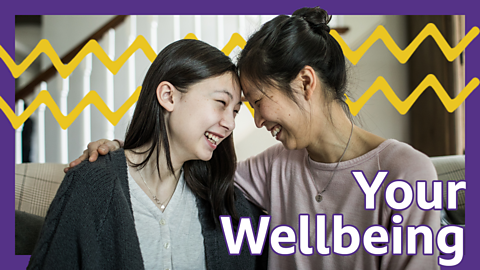The screen-time of young people can often be a worrying topic for parents, as their children and teens increasingly look to the internet to socialise with friends, have fun and even access learning.
However, itÔÇÖs important to remember that the internet can offer huge opportunities. Try not to worry too much about how much time theyÔÇÖre spending online and instead focus on how they can use their time online in a way thatÔÇÖs safe and positive for their mental health.

Have conversations with your child about the importance of using the internet safely
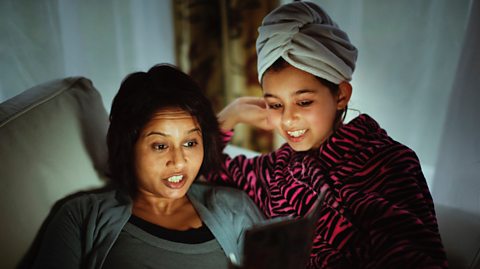
You donÔÇÖt need to pry or quiz your child about every website theyÔÇÖve seen, but checking in with them for a minute or two can make a huge difference; try and make the conversation as normal and as regular as talking about the weather, or something you watched on TV.
If you think anything your child is accessing is not appropriate for their age, be ready to explain why you think this. Wherever possible, make it a joint decision with your child, so they understand the reasons not to use something and will stick to it.
They can learn more in a safe online environment. For instance this ┤¾¤¾┤½├¢ site: , helps young people to understand safety and wellbeing issues online.

Show them how to use the internet in a positive way

Talk to your child about your own experience of the online world. Show them sites and apps that you like, and explain why you like them. You can also talk about your own less positive experiences online. If you feel pressured by the ÔÇÿperfectÔÇÖ photos people share on social media, then being open with your child about this can be a good thing. It might help them understand that the ÔÇÿperfectÔÇÖ pictures people share on social media don't always show reality. Encourage them to talk to you if theyÔÇÖre struggling with this.

Lead by example
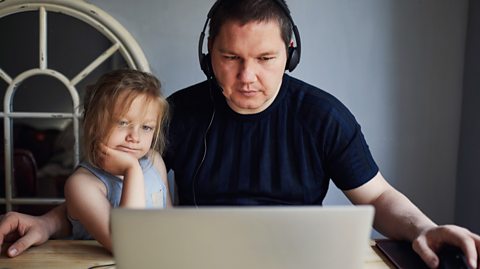
Children generally look to their parents as role models, so your own use of screens may influence what they consider 'normal'. For example, if you check your phone constantly at mealtimes or spend a lot of time online yourself, then itÔÇÖs likely your child might do the same.

Ask your child about the apps and websites they use

It can be easy to feel that you donÔÇÖt understand the latest technology, apps or social media that your child is using. But donÔÇÖt use this as an excuse not to get involved.
Ask your child to teach you and show you their favourite apps, games or websites. Showing an interest in their world can encourage conversation around any issues. This joint exploration of their online favourites will help you understand how they work, so that you can talk about the positives and whether you have any concerns. A quick search online can also tell you a lot.

Set boundaries - but be realistic
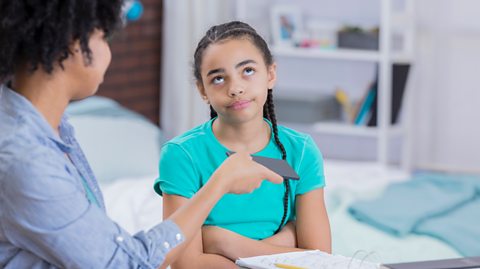
The boundaries you set for internet use will depend on your child's age. ItÔÇÖs like teaching your child to cross the road: youÔÇÖll make sure they hold your hand when theyÔÇÖre very young, but as they grow older you want them to assess the risks and stay safe more independently.
Whatever their age, itÔÇÖs a good idea to sit down together with your child to agree some rules about how much time they spend online. It might feel quite difficult to set boundaries, but you could agree that meal times are screen free, and they shouldnÔÇÖt go online just before bed or use any devices at night, because this can affect their sleep. You can often set timers on devices to limit internet use ÔÇô but try to help your child manage this for themselves as well.
You can also set up parental controls to stop your child from accessing harmful content online, but your child may well learn how to get around these - and thatÔÇÖs why itÔÇÖs important to make sure your child is able to make good decisions for themselves.

Spend time doing a positive activity together
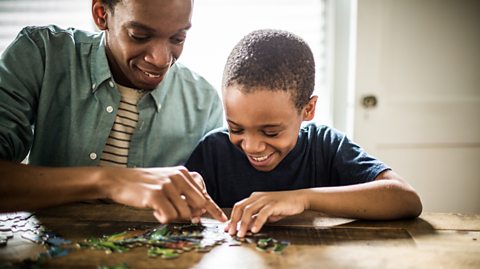
ItÔÇÖs important to balance your child's reliance on using screens with other important activities. Time away from what's going on online can help them feel calmer, so that's a great wellbeing reason for them to take a break from their screen. ItÔÇÖs also a great way of providing a space for them to talk through their concerns, without having a ÔÇÿbig chatÔÇÖ.
Research suggests that most children are actually more cautious than adults online, and that most are good at navigating the internet safely. Often when they do come across upsetting content, itÔÇÖs not because theyÔÇÖve gone looking for it, but because theyÔÇÖve found it by accident, or because someoneÔÇÖs sent it to them.
It's a good idea to reassure your child that they can always talk to you. But don't forget that you know them best and may well recognise if something seems 'not quite right'. If that's the case, there are a number of things you can do to help:
- Ask them if theyÔÇÖve seen anything online that they are not comfortable with (they may have seen things like nasty comments, sexual content or violent images.)
- Tell them that you wonÔÇÖt be cross or overreact if they tell you about something theyÔÇÖve seen, and that youÔÇÖd much rather that they talked to you, instead of keeping it to themselves.
- If they are upset or worried about something they've seen, talk about how they feel, and how they can avoid coming across that content again in future.
- If necessary, help them to report or block content they find disturbing.
- It's also natural that you might feel upset or cross about what they've been exposed to and how it might have affected them, but whatever happens, stay calm.

By Stevie Goulding, Parents Helpline Manager for the charity Young Minds

For more advice and support for children - visit the ┤¾¤¾┤½├¢ Action Line.
Looking for non-screen activities for your youngsters? The team at Young Minds have these resources:
For advice on talking to teenagers, visit .
For advice on supporting your child with anxiety, visit the .

More from ┤¾¤¾┤½├¢ Bitesize Parents' ToolkitÔǪ
Parents' Toolkit
Fun activities, real-life stories, wellbeing support and loads of helpful advice - we're here for you and your child.

Own it, from the ┤¾¤¾┤½├¢, has tips and advice for parents and children about having fun and staying safe online.

Five tips for helping your kids to eat healthily all year round
Healthy eating hacks for parents from dietitian Priya Tew.
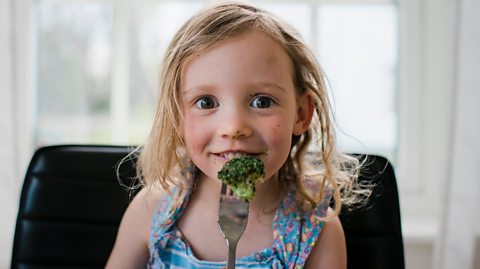
One in four children are bullied - what can parents do?
Psychologist Anjula Mutanda outlines how parents can spot signs of bullying, improve resilience and build confidence.
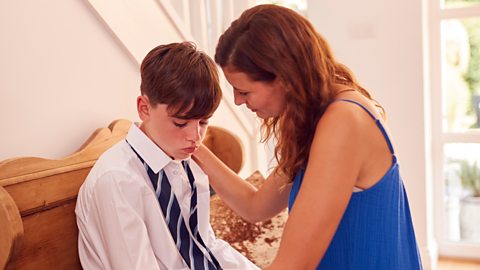
How to support your teen as they decide on their future career
Career coach Mark Anderson has advice for parents of teens who are choosing their options at GCSE or are nearing the world of work.

